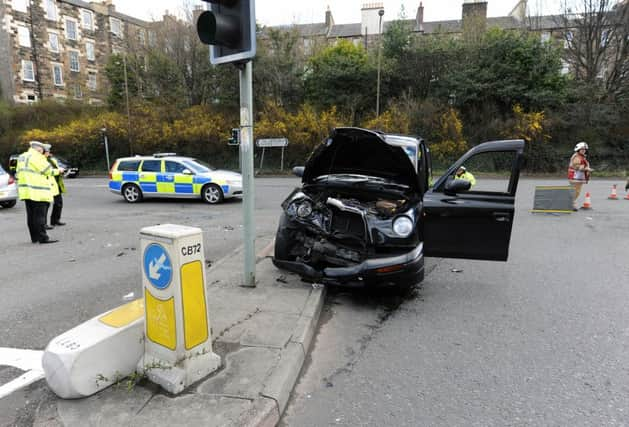Alastair Dalton: Road death toll is unacceptable


A total of 16 have died, nine of them pedestrians – including two children.
If as many had been killed in train or plane crashes over a similar period, there would be a national outcry and demands for urgent safety improvements.
Advertisement
Hide AdAdvertisement
Hide AdBut it seems things are different on the roads; it is as though we accept such a death toll is inevitable.
Even worse, I’m told this is no unprecedented spate – there were two similar periods with high numbers of fatalities last year.
Scotland’s road deaths also increased overall in 2014 for the first time in eight years, with the total up 28 to 200.
That was mainly because of 19 more pedestrian deaths than the previous year, with 57 killed in all.
There is also, I understand, no common link among the latest deaths, and very few of them happened in the extra period of darkness following the clocks going back on 25 October.
The carnage prompted a plea last week from one of Police Scotland’s most senior officers.
Assistant Chief Constable Bernard Higgins urged motorists, cyclists and pedestrians to all “take extra care and not take risks”.
He also told pedestrians they should use crossings where they were available, and consider wearing fluorescent clothing – which are already popular with many cyclists and joggers.
Advertisement
Hide AdAdvertisement
Hide AdSignificantly, Mr Higgins added: “Everyone has a responsibility not only for themselves, but every other road user.”
Alas, while driving over the following few days I witnessed a depressingly familiar pattern of dangerous behaviour on the roads.
Drivers changing lanes or pulling out without indicating, or trying to cut into the head of traffic queues and blocking other lanes.
There were also motorists driving in poor visibility, or at night with just sidelights or no lights at all.
Then there was the equally selfish and potentially dangerous behaviour which drivers displayed over parking, such as blocking bus stops or stopping on double yellow lines, including outside schools, as if such restrictions – imposed for safety reasons – don’t apply to them or can be flouted at will.
Parents, isn’t getting your child to school a few minutes late infinitely preferable to your thoughtless action leading to another child never making it there at all?
The problem, as I see it, is the “me first” mindset, which drivers automatically slip into as soon as they get behind the wheel.
Out goes consideration for anyone else. Once they’re in a car, drivers want to get where they’re going as fast as possible, and with no impediments.
Advertisement
Hide AdAdvertisement
Hide AdEssentially, as a means to this end, it’s a case of, “I’ll do whatever I want if I think I can get away with it, so get out of my way – you don’t count.”
So what’s to be done? Well, for a start, listen to the police, and act on it. Experts at last month’s annual Road Safety Scotland seminar discussed the increased 2014 death toll in great detail.
A new type of road safety campaign, particularly aimed at pedestrians, could be in the offing.
But I can’t see much prospect of behavioural improvements without raising the stakes.
Perhaps we need even stiffer penalties. Minimum fines for offences such as speeding, using mobile phones and careless driving have increased to £100, but upping them to £150 or £200 could increase their deterrent value.
But above all we need to question why 200 people a year are being killed on our roads, often as a consequence of human actions.